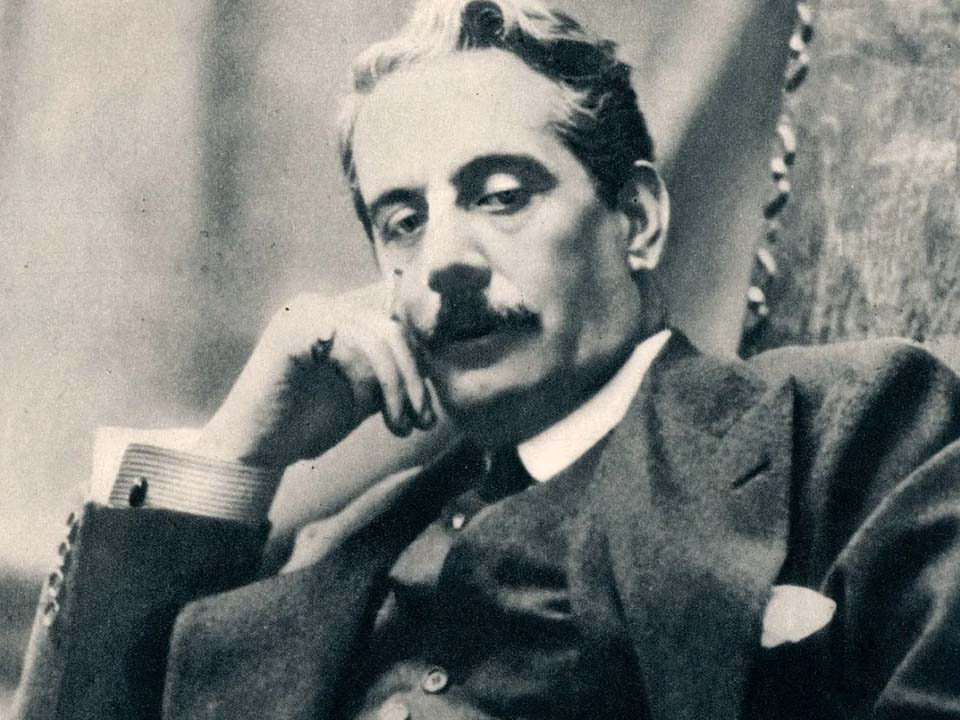Humanities West and the Italian Cultural Institute celebrate the life and art of Giacomo Puccini (December 22, 1858 to November 29, 1924) on the 100th anniversary of his death. His operas La Bohème, Tosca, Madama Butterfly and Turandot are among the most beloved and most often-recorded operas of all time. His arias are famous for both their emotional resonance and their melodic beauty—even among millions who have never listened to a complete opera. Puccini was born into a centuries-old family of Italian composers, and he began his successful career just as Verdi was completing his, quickly inheriting Verdi’s renown as the greatest living composer of Italian opera. We have brought the internationally praised scholar and musicologist Gabriele Dotto from Italy to share the stage with San Francisco Opera’s favorite Kip Cranna to tell some of the stories behind the composition of Puccini’s heavenly arias.
Giacomo Puccini and the Impact of Early 20th Century Media
Gabriele Dotto will trace the rapid rise of sound recordings and film as competitors for opera theaters and the traditional business of music publishers. Puccini and his publisher, Casa Ricordi, demonstrated an extraordinary combination of artistic creation and commercial activity, using new and efficient strategies to market Casa Ricordi’s opera repertoire to a globally expanding audience and “branding” Puccini as the publishing house’s most iconic composer.
Puccini Before Fame: The Composer in His Youth
Clifford (Kip) Cranna will discuss Puccini’s boyhood experiences, his musical training and his operatic influences. Cranna will demonstrate that some of the music Puccini wrote as a student was eventually recycled in his later operas. He will also concentrate on Puccini’s first two operas, the rarely performed Le Villi and Edgar, which were composed before his first big hit Manon Lescaut—the beginning of his enduring fame and operatic stardom.
